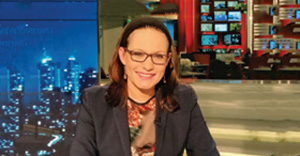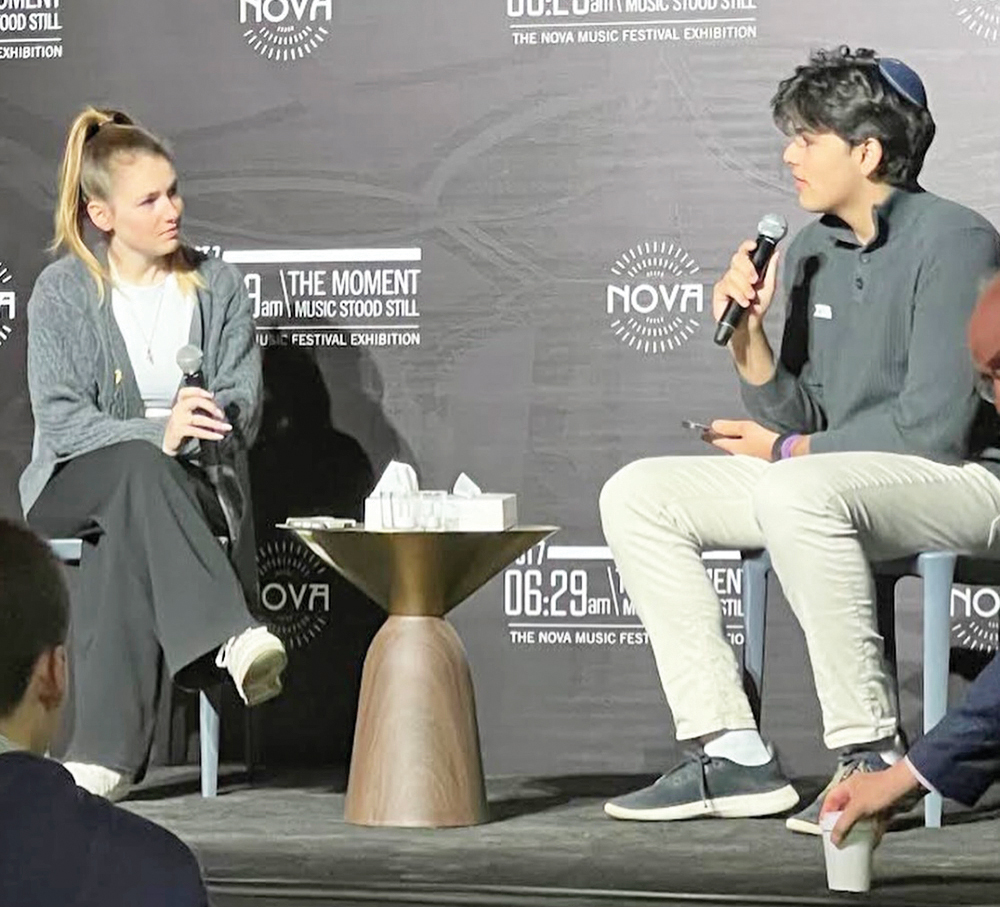
Each of Our Parts
אַתֶּם נִצָּבִים הַיּוֹם כֻּלְּכֶם לִפְנֵי ה׳ אֱלֹקיכֶם רָאשֵׁיכֶם שִׁבְטֵיכֶם זִקְנֵיכֶם וְשֹׁטְרֵיכֶם כֹּל אִישׁ יִשְׂרָאֵל.
You are all standing this day before the Lord, your God: the heads of your tribes, your elders, and your officers, every man of Israel.
(Deut. 29:9)
In the following verse, the Torah spells out all the people who stood together before God: “Your young children, your women, and your convert who is within your camp, both your woodcutters and your water drawers.”
Parshat Nitzavim is always read in one of the weeks preceding Rosh Hashanah, and the Torah appropriately suggests several ways to approach the new year.
The first is that we come together as one: “You are all standing here today.” The power and influence of individuals coming together to pray is greater than an individual’s prayer. At the new year we join together many times to fulfill commandments such as blowing the shofar or saying the Selichot penitential prayers. Unity is a popular buzzword. However, in this verse the unity we should strive for is “before the Lord, your God.”
Second, all the different sections of the people are included when we come together. The leaders and the woodcutters, the upper echelons of society and the man on the street. We are all in this together and share the same story.
The third approach is based on hasidic thought and explains this verse as speaking to the individual. We are told to bring together all the different parts of our personality, from “the heads of your tribes” to “your woodcutters and your water drawers.” These describe the compartments of our soul. During the soon-to-be-finished year there were periods when we were the “heads” and others when we were “woodcutters.” Sometimes we were successful and happy and at other times we sinned, were confused, and missed out on opportunities. As the year draws to a close, we enter the period of the Days of Mercy with the sum of all our parts. Sometimes we felt on top of the world and at other times we were in a downward spiral. In the month of Elul, as we approach Tishrei and the new year, we bring together all the parts of the past year and pray for a better year ahead.
What Is the Greatest Sin?
וְאַתָּה תָשׁוּב וְשָׁמַעְתָּ בְּקוֹל ה׳ וְעָשִׂיתָ אֶת כָּל מִצְוֹתָיו אֲשֶׁר אָנֹכִי מְצַוְּךָ הַיּוֹם.
And you will return and listen to the voice of the Lord, and fulfill all His commandments, which I command you this day.
(Deut. 30:8)
Where do we get the strength to erase the past and start all over again? How can we reboot the entire system? How does one clean the entire slate? The answer is in the miraculous power of “repentance,” although it may be more fitting to say that “man” is the miracle.
Parshat Nitzavim deals extensively with the topic of repentance: “And you will return and listen to the voice of the Lord,” and “When you return to the Lord, your God, with all your heart and with all your soul.”
The well-known educator Rabbi Shlomo Wolbe claimed that we do not sufficiently believe in ourselves and do not realize how great the power to make changes to ourselves really is. He was fond of saying that the biggest sin is the belief that we are destined to sin. In a conversation with a group of teenagers in the 1970s he made the following very meaningful comments:
“If I were asked to state my number-one belief, it would be ‘I believe in the greatness of man.’ This greatness enables him to correct himself, his surroundings, and the entire world. Many people believe in God, it is nothing unusual. But not everyone believes in the greatness of man as well. I do. I believe that a person can reach a true and significant connection with his Creator, that he can instigate great changes. These changes are not only external, pertaining to the world, but also internal. A person has the formidable spiritual strength to control himself.”
Get on the Field
תּוֹרָה צִוָּה לָנוּ מֹשֶׁה מוֹרָשָׁה קְהִלַּת יַעֲקֹב.
Moses commanded us a law, an inheritance of the congregation of Jacob.
(Deut. 33:4)
In one of the final verses in the Torah we are told that the Torah is an inheritance belonging to the entire congregation and this treasure is now our responsibility. “Moses commanded us a law, an inheritance of the congregation of Jacob.”
When I was growing up I thought that the Torah only belonged to those annoying religious fanatics, the primitives who went on the rampage during demonstrations, the extremists who were involved in all kinds of unclear protests. I was angry at them, I did not understand them, and I was forever criticizing them.
Sometime in my teenage years I heard an amazing comparison from the world of sports that changed my perspective. In a sports match there are fans who sit in the stadium and think they run the whole show. They criticize the umpire, the goalkeeper, the coach, and the owner. Throughout the game they shout, curse and blame everyone for how the game is played, and this pattern repeats itself each and every season. They would not consider, for even one second, going onto the field and trying to score a goal, to work hard to be part of the team and join the game. They do not think that the game actually belongs to them, or that they are part of it. These fans are happy to observe from the sidelines, and do no more than criticize.
The same applies to the Torah. We can choose to remain in the stadium and complain non-stop, or we can decide to get on the field and take responsibility. We may then discover that what we thought about the other players is not exactly the truth. It is our choice whether we remain sitting on the sidelines or decide to take the plunge and be part of the team by learning Torah and connecting to our heritage and previous generations. We choose whether we want to look for the relevance and meaning in the Torah in our generation.
As Moses concludes his historic speech, in the moments before he leaves this world, he addresses the entire Jewish nation and tells them, “I am bequeathing an inheritance to you. Take responsibility for it, all of you together.”
Sivan Rahav Meir is an Israeli television and print journalist, author and radio and TV host. She is the World Mizrach shlicha to North America.













